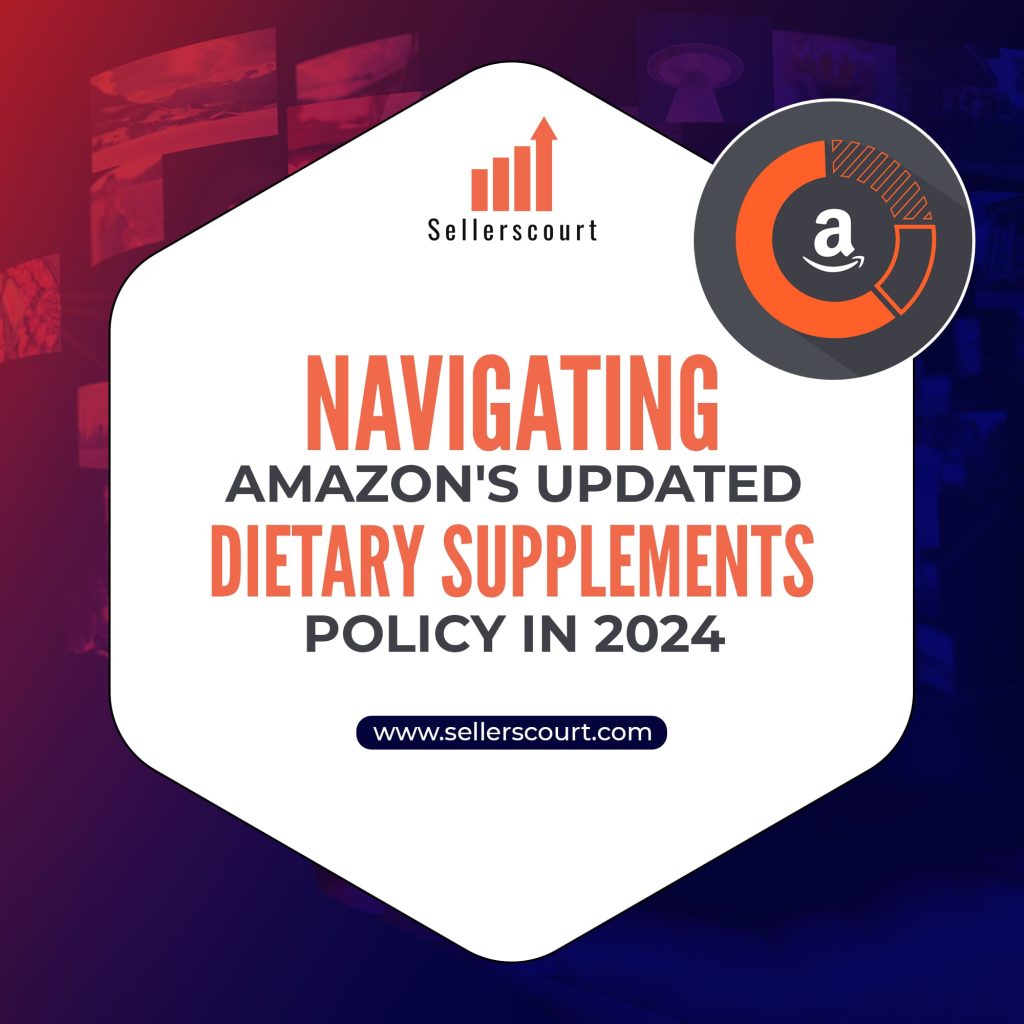
Navigating Amazon’s Updated Dietary Supplements Policy in 2024
Amazon has recently tightened its standards for selling dietary supplements on its platform. This move aims to ensure higher product quality and greater consumer safety. Here’s what sellers need to know about the new policy and how it impacts their operations.
The New Requirements
Previously, dietary supplement sellers were required to submit Certificates of Analysis (CoAs) from ISO/IEC 17025 accredited laboratories for each listed product. Additionally, brand owners had to provide a Letter of Guarantee, ensuring compliance with current Good Manufacturing Practices (cGMP) and confirming that their products contained only lawful and safe ingredients as defined by the FDA.
Under the new policy, Amazon no longer accepts CoAs directly from sellers. Instead, sellers must now work with specific labs designated by Amazon. Products must be certified to NSF/ANSI 173, NSF 229, or NSF Certified for Sport to meet Amazon’s requirements. If products do not meet these standards, Amazon will facilitate lab testing services, and sellers will have to undergo these tests through labs connected with Amazon.
Why the Change?
This policy update aims to safeguard consumers from potentially illegal products containing undisclosed ingredients. By requiring certifications from recognized standards like NSF/ANSI, Amazon ensures that the dietary supplements sold on its platform are of high quality and safe for consumption.
The Impact on Sellers
This change means that sellers need to adjust their compliance strategies significantly. Those who previously relied on their own CoAs must now coordinate with Amazon-approved labs, potentially increasing their operational costs and processing times. Additionally, the sudden implementation of these rules has left many sellers scrambling to meet the new requirements, with concerns about delisting of non-compliant products.
Steps to Compliance
Understand the Requirements: Sellers should familiarize themselves with NSF/ANSI 173, NSF 229, and NSF Certified for Sport standards.
Coordinate with Approved Labs: Establish a relationship with the labs designated by Amazon to ensure seamless compliance testing and certification.
Stay Informed: Regularly check Amazon Seller Central for updates and participate in webinars hosted by Amazon to stay current on policy changes and requirements.
Plan and Execute: Develop a compliance plan that includes timelines for testing and certification to avoid any disruptions in product listings.
Looking Forward
While the immediate response to Amazon’s new policy has been mixed, with some sellers expressing frustration over the lack of advance notice, the long-term benefits could include a safer marketplace and increased consumer trust. As the policy becomes clearer and more sellers comply with the new standards, the overall quality of dietary supplements on Amazon is expected to improve.
Sellers must adapt to these changes by proactively seeking certification and maintaining rigorous quality standards. By doing so, they can continue to thrive on Amazon’s platform while contributing to a safer and more reliable marketplace for consumers.
By staying informed and proactive, sellers can navigate these changes effectively and maintain their business operations smoothly on Amazon.
